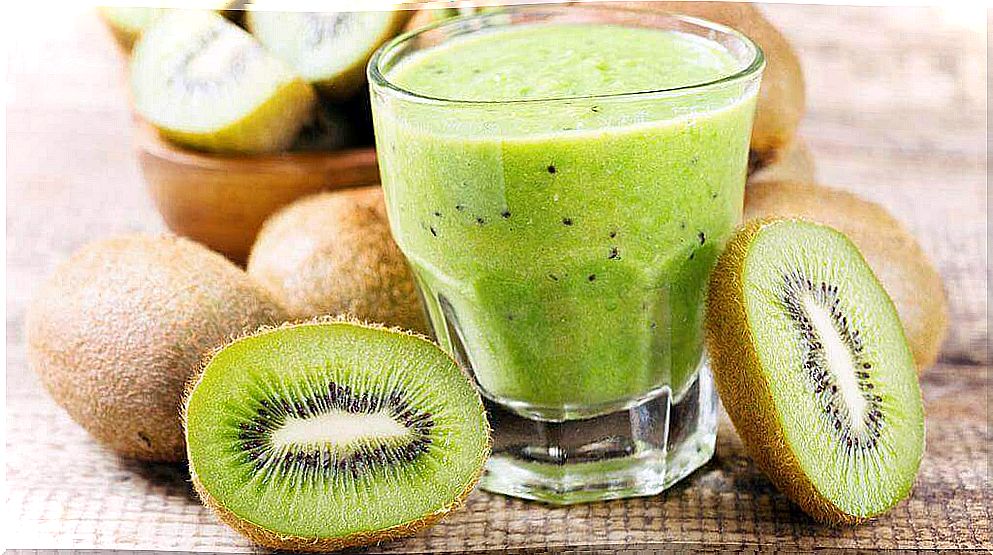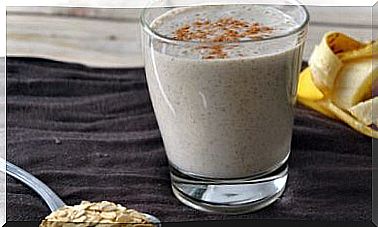Enzymes In Food: What Are They Used For?

Enzymes found in food are proteins that tend to have a digestive function. In general, they serve to improve the decomposition and absorption processes of nutrients. As a result, there are many foods rich in enzymes recommended in order to reduce constipation disorders.
They can also act as mediators in some chemical and physiological reactions. However, there are also enzymes with anti-inflammatory or even antioxidant properties. What else should we know about enzymes in food ? We talk about it in detail in this article.
Food proteolytic enzymes
Some enzymes, such as the actinidin present in kiwis, intervene in the breakdown of proteins, favoring the absorption of amino acids. Their function is specifically digestive, as stated in this article published in the journal Food Function .
However, in the scientific literature there is also evidence that links the intake of this enzyme with the reduction of constipation problems. Some human studies, such as the one published in the Asia Pacific Journal of Clinical Nutrition , claim that consuming kiwifruit can reduce symptoms of irritable bowel syndrome, such as flatulence, bloating and abdominal pain.
Another example of a proteolytic enzyme is found in pineapple. In this case we are talking about bromelain, which is able to improve the degradation of proteins for the subsequent absorption of amino acids.
This fruit is also famous for its diuretic and digestive properties. It is actually recommended to consume it after heavy meals, in order to reduce the symptoms associated with bloating or flatulence.

Anti-inflammatory properties of enzymes in food
Papaya contains an enzyme, papain, which has a significant anti-inflammatory power. In addition to this, it is used in the preparation of remedies for oral use due to its high antimicrobial power.
According to a study published in the B razilian Dental Journal , this enzyme is effective against various types of tooth decay due to the immunomodulatory and anti-inflammatory power.
Furthermore, an article published in the journal Nutrients indicates that regular consumption of papaya could be an effective aid in the prevention of obesity and other metabolic disorders.
This is due, in particular, to the antioxidant, antihypertensive and hypoglycemic properties. However, there is still no certainty that these benefits come from papain or other nutrients contained in the fruit.
Enzymes in the food supplement industry
Currently, there is insufficient evidence of the health benefits achievable with enzyme supplementation. Despite this, some protein preparations often contain such substances in their composition.
They are used for the purpose of reducing gastric or intestinal discomfort, resulting from the intake of proteins in high doses. Additionally, enzymes can help reduce flatulence, which in itself is a great benefit.
The sports supplement industry is always looking for substances with a different chemical structure in order to improve the absorption of nutrients.
The results obtained with whey proteins, in terms of digestibility, have been quite positive thanks to the introduction of enzymes in high quality protein products.

Enzymes in food: there is still a long way to go
The functions of enzymes may be many more than we already know. Their effects in allergic reactions are being studied, as well as their relationship with the onset of certain diseases.
Several in vitro models have been described, but human studies are not yet available to demonstrate the results. Therefore, they constitute the field of research for the next few years, which in turn will depend on the knowledge obtained in the field of physiology.
In this regard, it is currently possible to recommend some foods that can improve digestion, for example pineapple or kiwi.
Other products with anti-inflammatory and antioxidant properties are also known, but it is not yet clear whether enzymes play a role in this regard or if these are simply due to the presence of flavonoids.
To conclude, it is good to specify that the enzymes we have talked about in this article are found in products of plant origin. All the more reason to recommend the intake of fresh products compared to industrial ones, so widely used today in diets.









